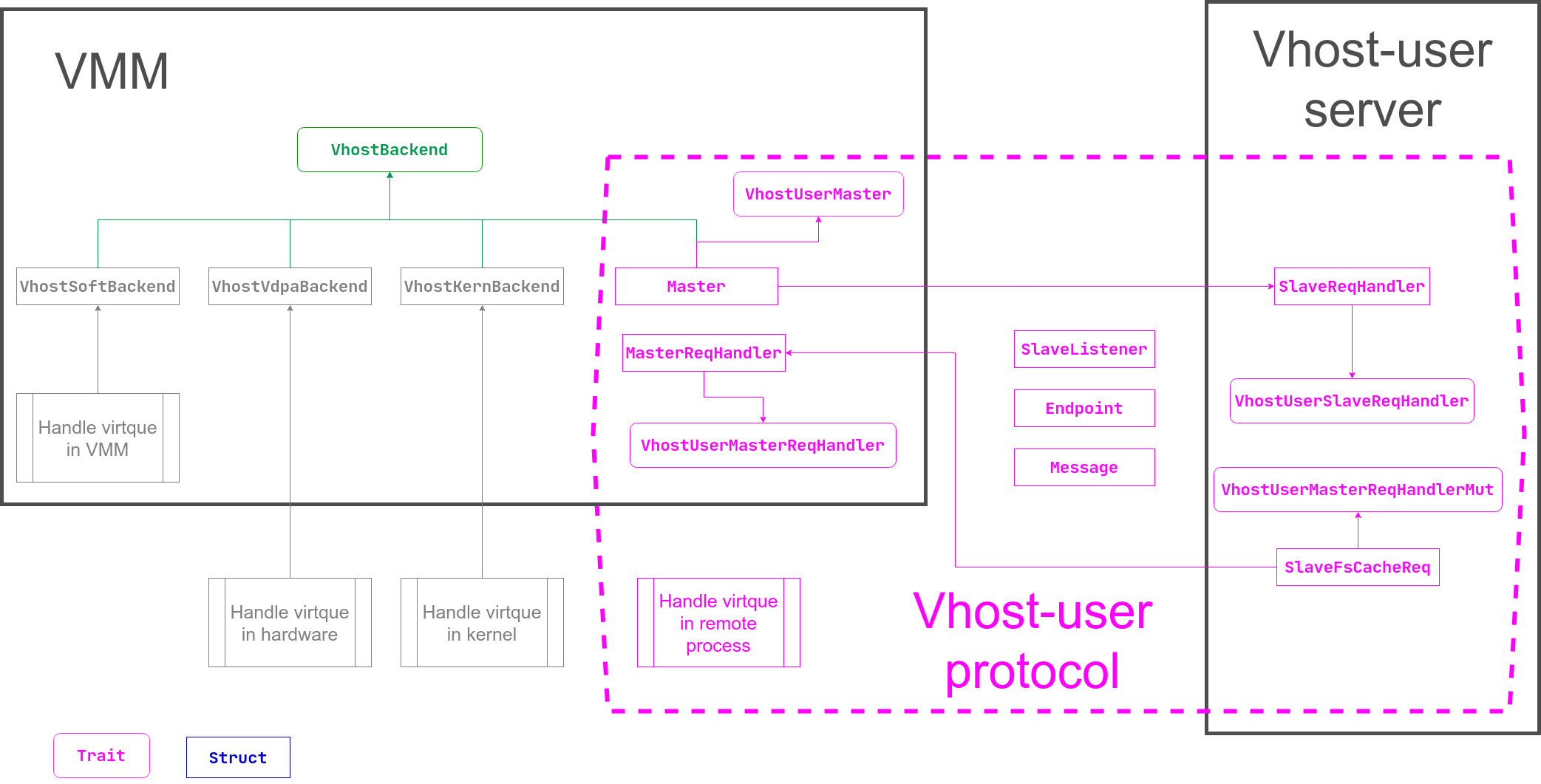mirror of
https://chromium.googlesource.com/crosvm/crosvm
synced 2024-11-24 20:48:55 +00:00
This code is unused and untested, while simultaneously making the rest of the virtio device code more complex. Remove it. BUG=b:276993009 TEST=tools/dev_container tools/presubmit Change-Id: I9d44f92419c6912d1735043404d4f64efc95bba4 Reviewed-on: https://chromium-review.googlesource.com/c/crosvm/crosvm/+/4676076 Reviewed-by: Keiichi Watanabe <keiichiw@chromium.org> Commit-Queue: Daniel Verkamp <dverkamp@chromium.org> Reviewed-by: Frederick Mayle <fmayle@google.com> Reviewed-by: Junichi Uekawa <uekawa@chromium.org> |
||
|---|---|---|
| .. | ||
| .buildkite | ||
| .cargo | ||
| .github | ||
| docs | ||
| src | ||
| .gitignore | ||
| .gitmodules | ||
| Cargo.toml | ||
| CODEOWNERS | ||
| LICENSE | ||
| LICENSE-BSD-3-Clause | ||
| LICENSE-BSD-Chromium | ||
| README.md | ||
vHost
A pure rust library for vhost-user. This is a fork of rust-vmm/vhost.
The vhost-user protocol aims to implement vhost backend drivers in userspace, which complements the ioctl interface used to control the vhost implementation in the Linux kernel. It implements the control plane needed to establish virtqueue sharing with a user space process on the same host. It uses communication over a Unix domain socket to share file descriptors in the ancillary data of the message.
The protocol defines two sides of the communication, master and slave. Master is the application that shares its virtqueues, slave is the consumer of the virtqueues. Master and slave can be either a client (i.e. connecting) or server (listening) in the socket communication.
